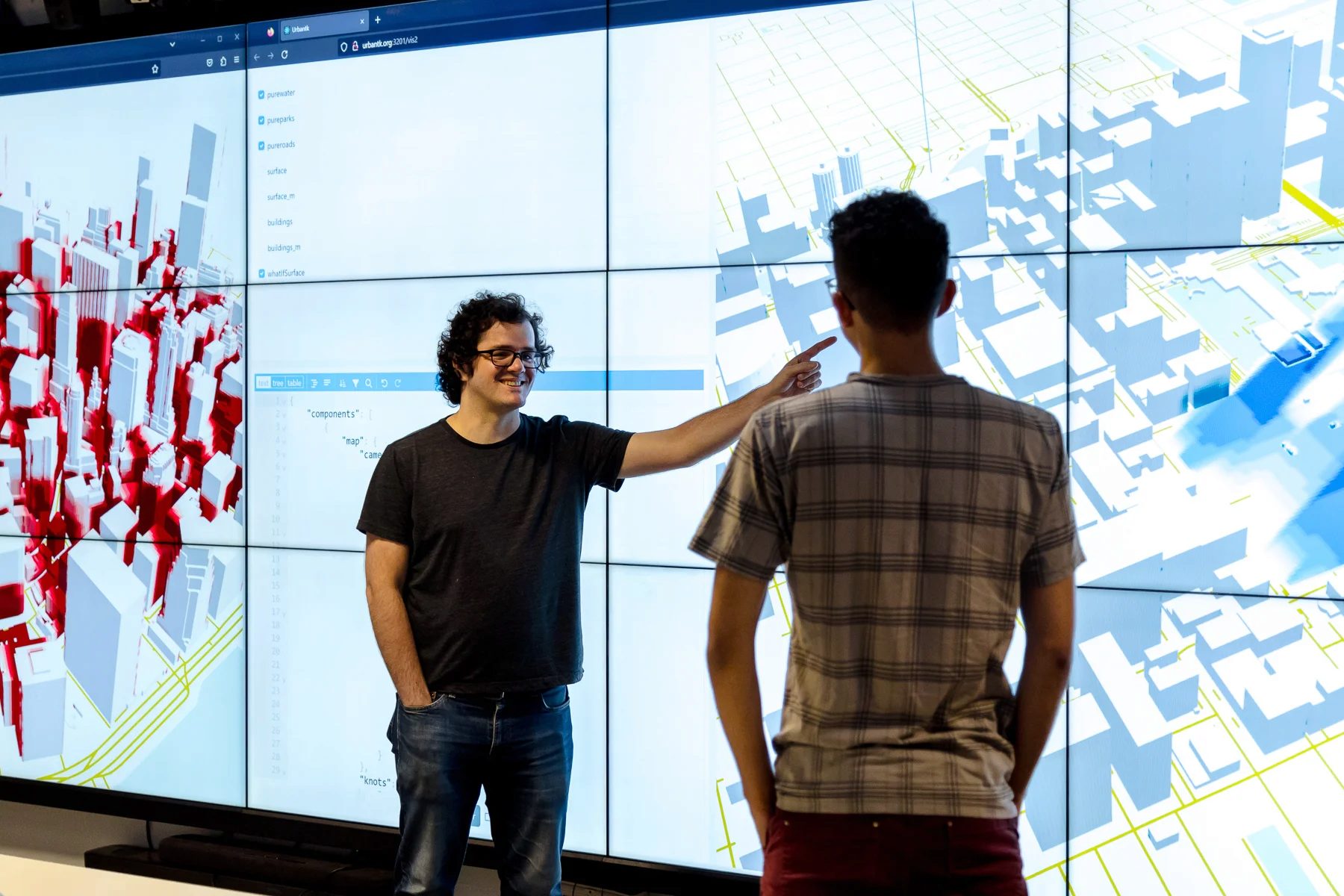UIC Researchers Join National Project to Turn Urban Data into Healthier Cities
September 1st, 2024 - August 31st, 2024
Categories: Applications, Software, User Groups, Visualization, Visual Analytics, Data Science, Urban Data Visualization

About
EVL faculty and Computer Science (CS) Assistant Professor Fabio Miranda (PI) and Civil, Materials, and Environmental Engineering (CME) Professor Sybil Derrible (co-PI) have been awarded $1.75 million NSF grant entitled: "Collaborative Research: Frameworks: Cyberinfrastructure to Catalyze and Sustain the Urban Computing Community.” Also known as “The Open-Source Cyberinfrastructure for Urban Computing Research” (OSCUR), the grant is part of an overall $5 million project that is collaborative with the University of Washington and NYU. Here at UIC, the overall effort includes the departments of CS, CME, and the College of Urban Planning and Public Affairs (CUPPA). The grant will run from September 2024 to August 2029.
Project Overview:
Cities are the loci of resource consumption, economic activity, and innovation; they are where our looming sustainability problems were born and where those problems must be solved. Given our increasing ability to collect, transmit, store, and analyze data, we have the opportunity to go beyond today’s imperfect and often anecdotal understanding of cities to enable better operations, better planning, and better policy. To understand cities, we must analyze the data exhaust from their components - infrastructure, environment, and people - and how they interact over space and time. While there are already troves of open data about cities, their potential remains largely untapped due to unique challenges related to diversity, scale, and complexity of both urban data and computations required to obtain insights from these data. In this project, we aim to democratize data-driven and data-intensive approaches in urban computing to empower a broad range of stakeholders to analyze urban data at scale and tackle problems from different domains, including transportation, accessibility, and disaster management. We will address two critical obstacles to greater progress in urban computing: the lack of documented, robust, well-engineered tools and open computing platforms, and a dispersed community of researchers and developers. At the core of our proposal is the development of a cyberinfrastructure that integrates methods and tools for the exploration of urban data that are scalable, reusable, interoperable, and offer solutions to common challenges, including data cleaning, management, and visualization. We will deploy an integrated suite of tools in a collaborative cloud environment, enabling users from different domains to easily reuse existing methods across domains to ensure sustainability, facilitate collaboration between researchers and developers, and develop a cohesive community.
Keywords: urban data, urban science, big data